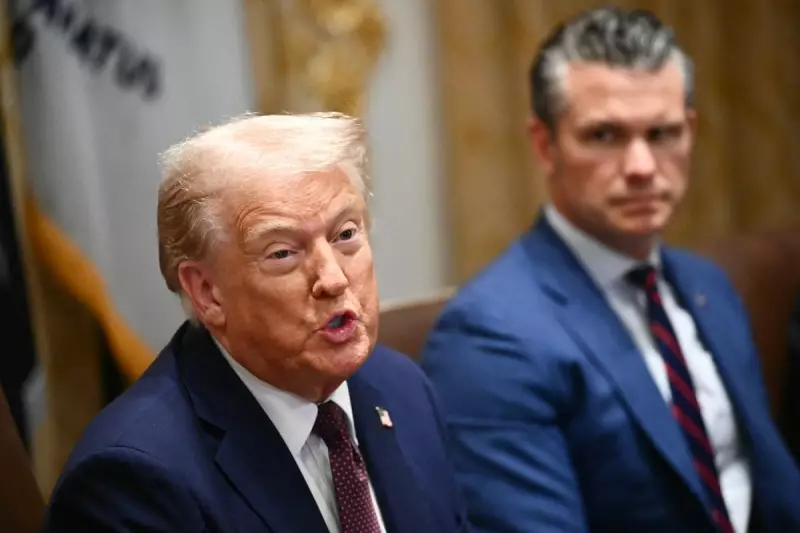
In a revelation that has sent shockwaves through political circles, former President Donald Trump allegedly proposed deploying American military forces against domestic criminal elements during a private meeting with advisors. This controversial suggestion, if implemented, would represent a dramatic departure from long-standing legal traditions separating military and law enforcement operations within the United States.
The Private Meeting That Raised Eyebrows
According to sources familiar with the discussion, Trump floated the idea during a gathering with former television host Pete Hegseth and other advisers. The conversation reportedly touched on using the US military's might to combat what Trump described as rampant criminal activity within American cities.
Such a move would directly challenge the Posse Comitatus Act, a foundational 19th-century law that severely restricts the use of federal military personnel for domestic law enforcement. Legal experts have been quick to highlight the constitutional implications of bypassing this crucial legislation.
Historical Context and Legal Boundaries
The principle of separating military and police functions dates back to the nation's founding, with safeguards specifically designed to prevent the federal government from using the armed forces against its own citizens. While exceptions exist for extreme circumstances, such as insurrection or widespread civil unrest, Trump's proposal appeared to extend far beyond these narrow parameters.
Military leaders have traditionally resisted such expansions of their domestic role, maintaining that law enforcement should remain primarily with civilian authorities. The Pentagon has consistently emphasized that its mission focuses on external threats, not domestic crime control.
Political Reactions and Implications
The revelation has sparked immediate concern among constitutional scholars and political opponents, who view the proposal as potentially authoritarian. Supporters, however, argue that extraordinary measures might be necessary to address what they see as deteriorating public safety in some urban areas.
This incident adds to ongoing debates about the proper balance between security and civil liberties, particularly as the country moves toward another presidential election cycle. The discussion also raises questions about how future administrations might interpret or challenge long-standing legal boundaries governing military deployment within the United States.
As the story continues to develop, observers from across the political spectrum are watching closely to see how this revelation might influence both policy discussions and electoral politics in the coming months.





